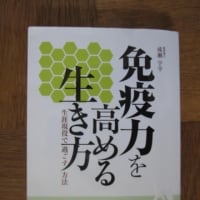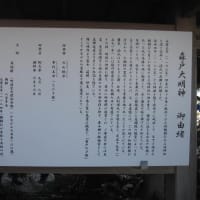
(#114から続く。)レーヴィンの結婚観は次のようなものだ。特に英訳や仏訳からも引用する必要はないのだが、折角だから引用しておこう。トルストイは2歳の時に母親が亡くなり、母親の記憶はないようだ。それだけに、母親に対する憧れは強かったのであろう。この作品の主人公レーヴィンも同じ境遇として描かれている。トルストイは父も9歳の時になくしているので、家庭というものに憧れを持っていたのであろう。
トルストイのデビュー作と言われる「幼年時代」(1854年26歳の作品)には、主人公の母の姿が活き活きと描かれ、この母の死亡でこの作品はおわるのだが、この作品の中の母の姿は、トルストイの経験ではなく想像から生れて来たものだということである。
母親への思いはともかく、このレーヴィンの結婚への考えは、多くの青年の気持ちに通ずるのではないだろうか。どうだろう。若い時に放蕩無頼の生活を送ったトルストイにしてこのような気持ちがあるのである。
キティーと結婚する前に、レーヴィンはそれまでに思っていたとおり、自分の日記をこれから妻になるキティーに見せる。自分は実際はこのような人間だということをわからせるためである。この日記を読んだキティーの反応はどうだったのだろうか。その場面をもう一度次回で引用したくなった。
私にはこんなことを言う資格はないかもしれないが、この英訳は使っている単語や文章が理屈っぽくて気に入らない。「それから」というのにSecondarily などという言葉はこういう時の表現にはどうもなじまない。Great majority of acquaintances 、chief affair of life などという言葉も詩的には響かない。
フランス語のd’abord 、ensuite はとても自然だ。l’acte principal de la vie なども、ふさわしい品のある言葉に感ずる。でも、ロシア語の原文がわからないので、本当に何も言うことはできないのだ。しかも私が、英語とかフランス語とかの言葉のひびき云々などというのは笑止千万であろうが。しかしそう感ずるのだからしかたがない。
「Levine se souvenait peine de sa mere. Son souvenir pour lui etait sacre et sa future femme devait ,a ses yeux, etre une reincarnation de cet ideal de grace et de saintete
qu ‘etait sa mere.
L'amour ne pouvait exister pour lui en dehors du mariage ; bien plus, il pensait d'abord a la famille, et ensuite a la femme qui la lui donnerait. Ses idees sur le mariage differaient de celles de la plupart de ses amis pour qui le mariage n'etait qu'un des evenements entre autres de l'existence ; pour Levine, c'etait l'acte principal de la vie, celui dont son bonheur dependait tout entier. Et maintenant il fallait y renoncer ! 」
「Levin scarcely remembered his mother. His conception of her was for
him a sacred memory, and his future wife was bound to be in his
imagination a repetition of that exquisite, holy ideal of a woman that
his mother had been.
He was so far from conceiving of love for woman apart from marriage
that he positively pictured to himself first the family, and only secondarily
the woman who would give him a family. His ideas of marriage
were, consequently, quite unlike those of the great majority of his
acquaintances, for whom getting married was one of the numerous facts of
social life. For Levin it was the chief affair of life, on which its whole
happiness turned.」
「レーヴィンは母をかすかにしかおぽえていなかった。母
についての観念は彼にとって神聖な思い出であり、彼の未
来の妻は、彼の想像の中では、母が彼にとってそうであっ
たような、素晴らしい、神聖な女性の理想の再現でなけれ
はならなかった。
女性に対する愛は、彼には結婚をぬきにして考えられな
.かったばかりでなく、彼はまず家族を想像し、それからそ
の家族を彼にあたえてくれる女性を考えるのだった。結婚
についての彼の観念は、だから、結婚を日常生活の多くの
問題の一つと見なす知人たちの大多数のもつ観念とは異な
っていた。レーヴィンにとっては、それは人生のすべての
幸福を左右するもっとも重要な問題だった。」
和訳は工藤精一郎氏による、(集英社版世界文学全集)から引用,英訳、仏訳はそれぞれ#113,#114で紹介したものからの引用である。
*画像:トルストイ著「アンナ・カレーニナ」Ⅰ、Ⅱ 工藤精一郎訳 集英社版世界文学全集
1977年刊 Ⅰ全501ページ Ⅱ全 437ページ
トルストイのデビュー作と言われる「幼年時代」(1854年26歳の作品)には、主人公の母の姿が活き活きと描かれ、この母の死亡でこの作品はおわるのだが、この作品の中の母の姿は、トルストイの経験ではなく想像から生れて来たものだということである。
母親への思いはともかく、このレーヴィンの結婚への考えは、多くの青年の気持ちに通ずるのではないだろうか。どうだろう。若い時に放蕩無頼の生活を送ったトルストイにしてこのような気持ちがあるのである。
キティーと結婚する前に、レーヴィンはそれまでに思っていたとおり、自分の日記をこれから妻になるキティーに見せる。自分は実際はこのような人間だということをわからせるためである。この日記を読んだキティーの反応はどうだったのだろうか。その場面をもう一度次回で引用したくなった。
私にはこんなことを言う資格はないかもしれないが、この英訳は使っている単語や文章が理屈っぽくて気に入らない。「それから」というのにSecondarily などという言葉はこういう時の表現にはどうもなじまない。Great majority of acquaintances 、chief affair of life などという言葉も詩的には響かない。
フランス語のd’abord 、ensuite はとても自然だ。l’acte principal de la vie なども、ふさわしい品のある言葉に感ずる。でも、ロシア語の原文がわからないので、本当に何も言うことはできないのだ。しかも私が、英語とかフランス語とかの言葉のひびき云々などというのは笑止千万であろうが。しかしそう感ずるのだからしかたがない。
「Levine se souvenait peine de sa mere. Son souvenir pour lui etait sacre et sa future femme devait ,a ses yeux, etre une reincarnation de cet ideal de grace et de saintete
qu ‘etait sa mere.
L'amour ne pouvait exister pour lui en dehors du mariage ; bien plus, il pensait d'abord a la famille, et ensuite a la femme qui la lui donnerait. Ses idees sur le mariage differaient de celles de la plupart de ses amis pour qui le mariage n'etait qu'un des evenements entre autres de l'existence ; pour Levine, c'etait l'acte principal de la vie, celui dont son bonheur dependait tout entier. Et maintenant il fallait y renoncer ! 」
「Levin scarcely remembered his mother. His conception of her was for
him a sacred memory, and his future wife was bound to be in his
imagination a repetition of that exquisite, holy ideal of a woman that
his mother had been.
He was so far from conceiving of love for woman apart from marriage
that he positively pictured to himself first the family, and only secondarily
the woman who would give him a family. His ideas of marriage
were, consequently, quite unlike those of the great majority of his
acquaintances, for whom getting married was one of the numerous facts of
social life. For Levin it was the chief affair of life, on which its whole
happiness turned.」
「レーヴィンは母をかすかにしかおぽえていなかった。母
についての観念は彼にとって神聖な思い出であり、彼の未
来の妻は、彼の想像の中では、母が彼にとってそうであっ
たような、素晴らしい、神聖な女性の理想の再現でなけれ
はならなかった。
女性に対する愛は、彼には結婚をぬきにして考えられな
.かったばかりでなく、彼はまず家族を想像し、それからそ
の家族を彼にあたえてくれる女性を考えるのだった。結婚
についての彼の観念は、だから、結婚を日常生活の多くの
問題の一つと見なす知人たちの大多数のもつ観念とは異な
っていた。レーヴィンにとっては、それは人生のすべての
幸福を左右するもっとも重要な問題だった。」
和訳は工藤精一郎氏による、(集英社版世界文学全集)から引用,英訳、仏訳はそれぞれ#113,#114で紹介したものからの引用である。
*画像:トルストイ著「アンナ・カレーニナ」Ⅰ、Ⅱ 工藤精一郎訳 集英社版世界文学全集
1977年刊 Ⅰ全501ページ Ⅱ全 437ページ



















